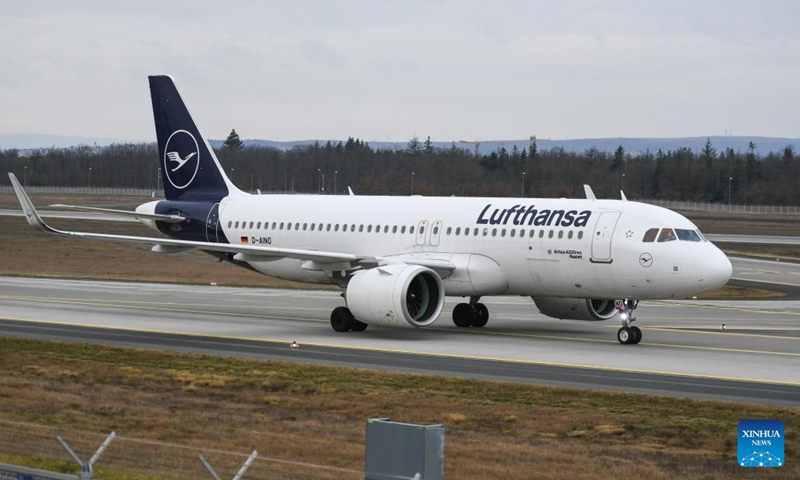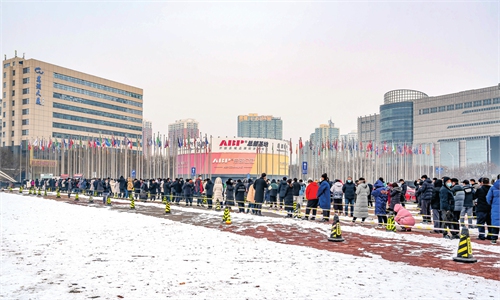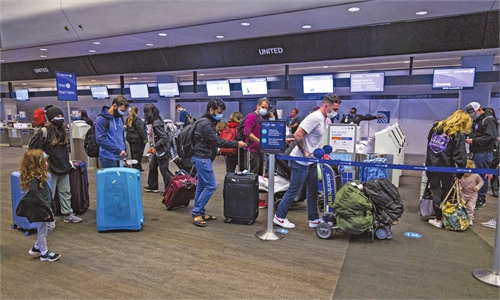Blindly lifting or relaxing international travel restrictions to cause catastrophic consequences: Chinese epidemiologist

A Lufthansa airplane taxis along a runway at Frankfurt airport in Frankfurt, Germany on January 17, 2022. Photo: Xinhua
Blindly lifting or relaxing international travel restrictions may cause catastrophic consequences, Zeng Guang, former chief epidemiologist of China's Centers for Disease Control and Prevention (CDC), warned on his Sina Weibo account on Wednesday in response to the statement from the Emergency Committee under the International Health Regulations of the WHO, saying blanket travel restrictions do not effectively contain the global spread of COVID-19.
The Emergency Committee suggested on January 19 in a statement on its 10th meeting that "blanket travel bans, which are not effective in suppressing international spread [as clearly demonstrated by the Omicron experience]," and it proposed to lift or ease international traffic bans as "they do not provide added value and continue to contribute to the economic and social stress experienced by States Parties."
According to Zeng, it is not a mandatory recommendation and in his point of view, the suggestion is not complete and perfect.
Although the WHO's point of view reflects the opinions of some Western scholars to some extent, it cannot reflect all the results and effectiveness of the prevention and control measures of different countries due to their varied national conditions.
Zeng pointed out that the prevention and control measures adopted in China, including wearing masks, nucleic acid testing, quarantine, vaccination, travel bans and circuit breaks of international airlines, all have proved effective in ensuring the smooth progress of coronavirus prevention and control in China.
Under current circumstances, it is inappropriate to relax or lift the international travel ban, which may have catastrophic consequences, Zeng noted.
He pointed out that many Western countries like the UK which are gradually opening their doors and lifting bans on gathering and traveling are obliged to do so due to their domestic social and economic difficulties, rather than a decision based on a scientific judgment on public health.
Whereas in China, the dynamic zero-COVID approach has proved highly effective in the past two years, Zeng said, noting that although the difficulty and cost of prevention and control have increased significantly since the emergence of the Omicron variant, the increase is not inevitable and it is related with imprecise prevention measures.
If the pandemic worsens in and outside China, Zeng says the prevention work in China will have to be strengthened rather than weakened, since herd immunity hasn't been fully realized yet, antibodies have substantially decreased in people who have been vaccinated and the coverage of booster shots is not sufficient.
Zeng suggested that China should take actions in line with lessons learnt from other countries that lifted travel bans. Preparations for relaxing restrictions should be made, including in public health, sciences and mental health, he added.
If China fails to publicize scientific knowledge, vaccinate the population, and pay attention to the mental health of its citizens, but blindly follow the recommendations of the WHO, the consequences will be disastrous, Zeng noted.
Global Times



